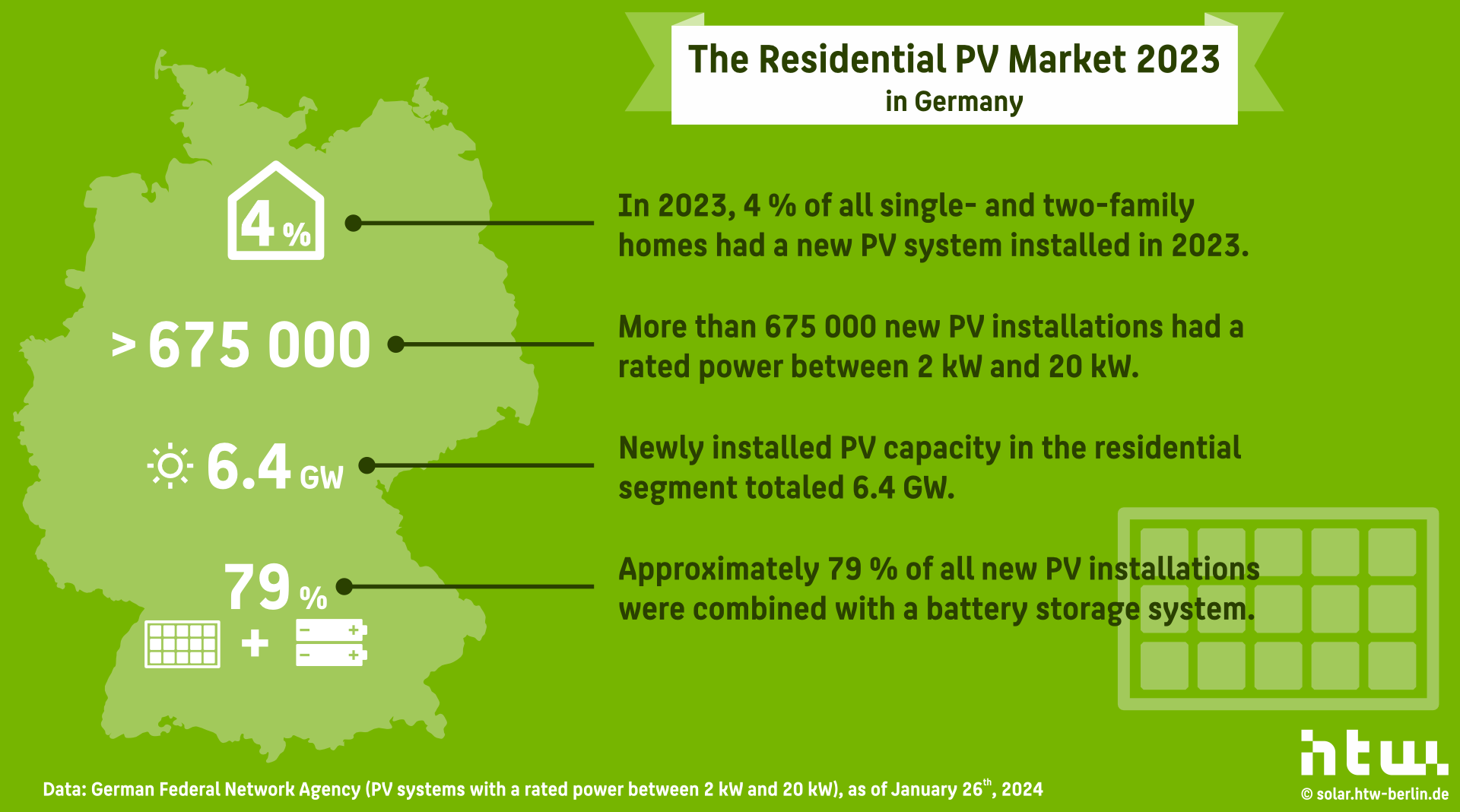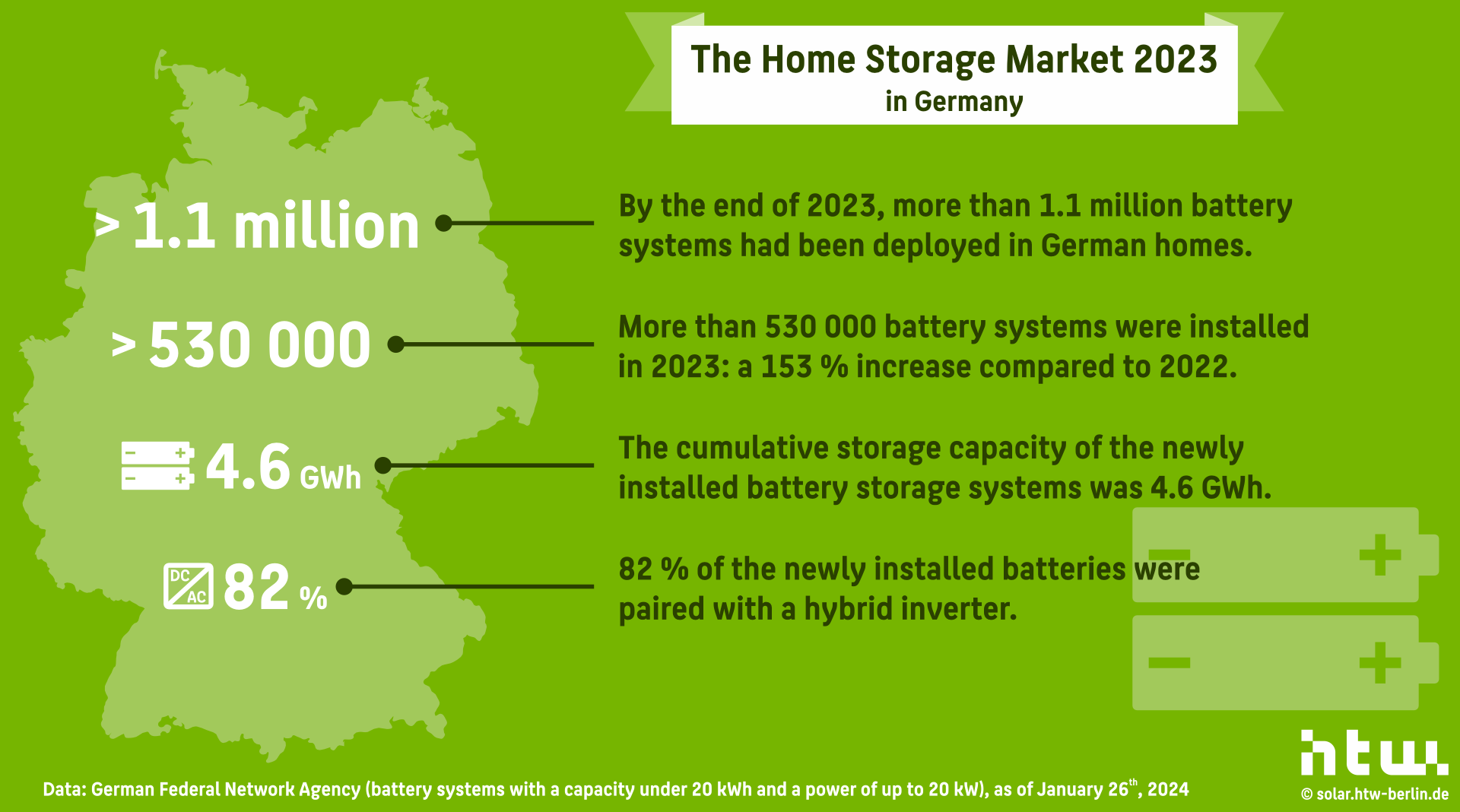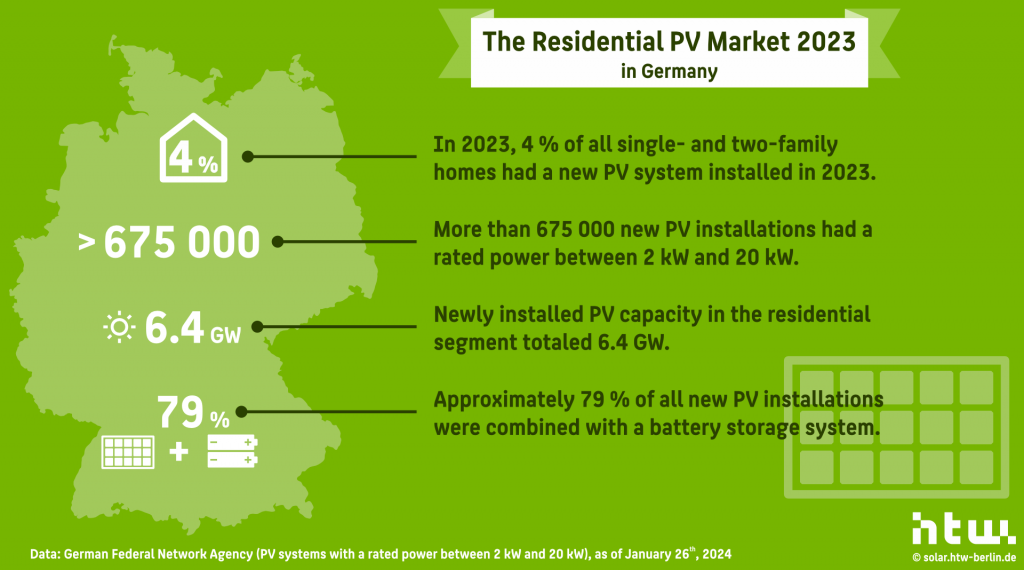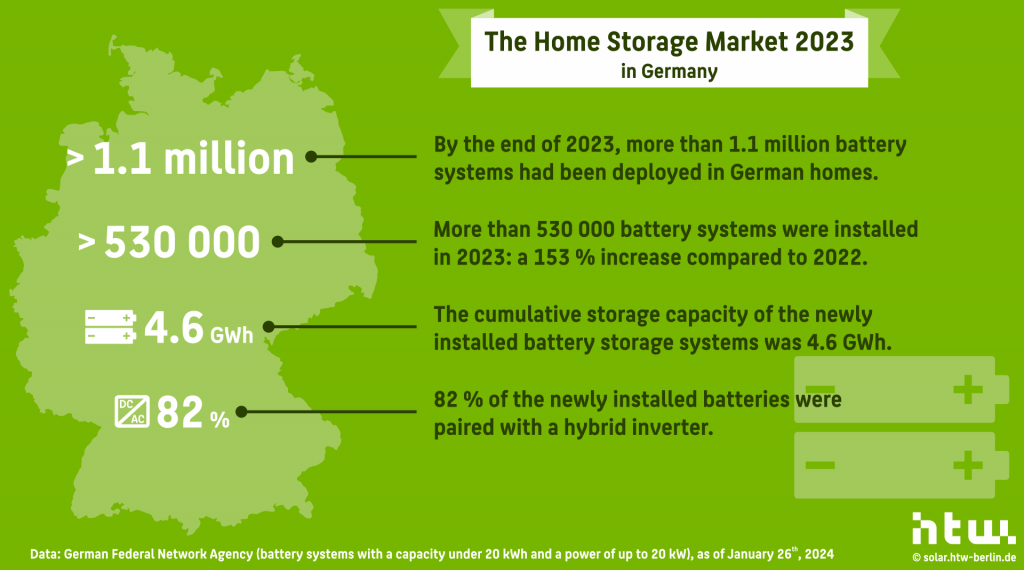Press release
Energy Storage Inspection 2024: The winners are BYD, Energy Depot, Fronius, Kostal and RCT Power
20 home storage systems have been evaluated by the HTW Berlin, including new products from Dyness, Goodwe, Hypontech, Kostal and Pylontech.
- Solar Storage Systems Research Group
- HTW Berlin – University of Applied Sciences, 02/2024
February 8, 2024
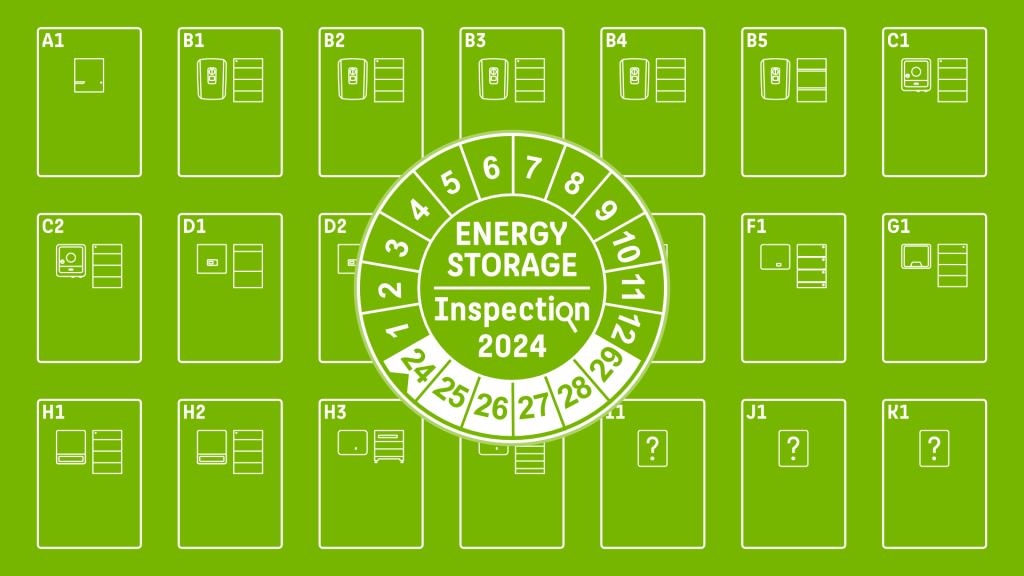
20 solar energy storage systems from a total of 14 manufacturers have been evaluated by the HTW Berlin University of Applied Sciences in the latest edition of its storage test. New additions in the 2024 Energy Storage Inspection: eight hybrid inverters and eight battery storage systems, including some from Dyness, Goodwe, Hypontech, Kostal and Pylontech. The Solar Storage Systems research group attested 16 home storage systems a high energy efficiency. Only three devices were not convincing due to high conversion and standby losses
HTW Berlin’s study criticizes incorrect product information provided by some storage manufacturers
As part of the 2024 Energy Storage Inspection, HTW Berlin researchers analyzed the laboratory measurements from 20 lithium battery systems. With a battery efficiency of 97.8 %, the pulse neo 6 home storage system from Varta came out on top. In comparison, one of the tested battery storage systems only achieved an efficiency of 87.9 % – almost 10 percentage points below the top value. The AC-coupled pulse neo 6 home storage system achieved another top value with a standby consumption of just 2 W. On average, the 20 models tested require an output of 13 W in standby mode. However, the most inefficient inverter in the test draws a considerable 64 W from the power grid when the battery storage system is discharged. „Its measured standby consumption is therefore 10 times higher than specified by the manufacturer on the data sheet. From the consumer’s perspective, this is particularly disappointing,“ summarizes Cheyenne Schlueter, co-author of the study. The researchers also identified discrepancies between the laboratory measurements and the manufacturer’s specifications regarding the storage capacity: a 15 kWh battery storage system, as declared by the manufacturer, only achieved a usable storage capacity of 13.3 kWh on the test bench. The authors list further examples of a lack of transparency and plausibility of the data sheet information in their study.
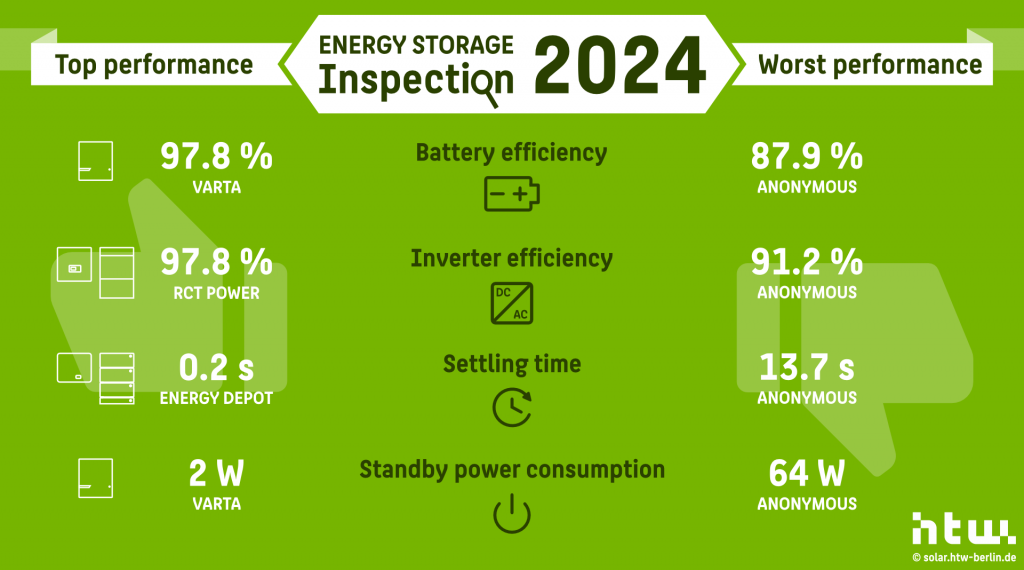
High inverter efficiencies are particularly important for discharge power values of just a few hundred watts
This year, the Energy Storage Inspection is comparing the conversion efficiency of several inverters at very low loads using additional laboratory tests conducted by the Austrian Institute of Technology (AIT) and the Karlsruhe Institute of Technology (KIT). The importance of this: at nighttime, and therefore over several thousand hours a year, the household electricity consumption is typically between 100 W and 300 W. A comparison of several 10 kW inverters with a power output of 200 W reveals considerable differences: while the hybrid inverter Power Storage DC 10.0 from RCT Power stood out with a partial load efficiency of 92 %, the device with the lowest conversion efficiency in the test achieved an efficiency of merely 71 %.
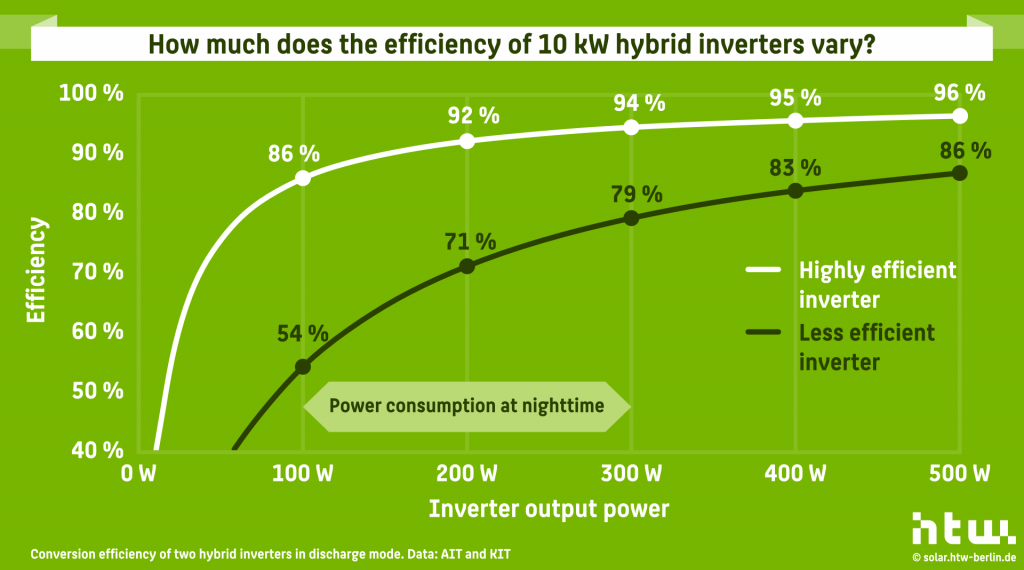
If this less efficient inverter is to supply 200 W to the electrical consumers in the house, the battery storage system must therefore be discharged with 282 W. This means that conversion losses of 82 W occur in the inverter. The losses of a high-efficiency inverter are only 17 W. „Put simply, the higher the inverter efficiency, the greater the benefit of the battery storage system,“ emphasizes Johannes Weniger, initiator of the Energy Storage Inspection. The authors of the study advise households with a low nighttime electricity consumption to choose an inverter with a high partial load efficiency.
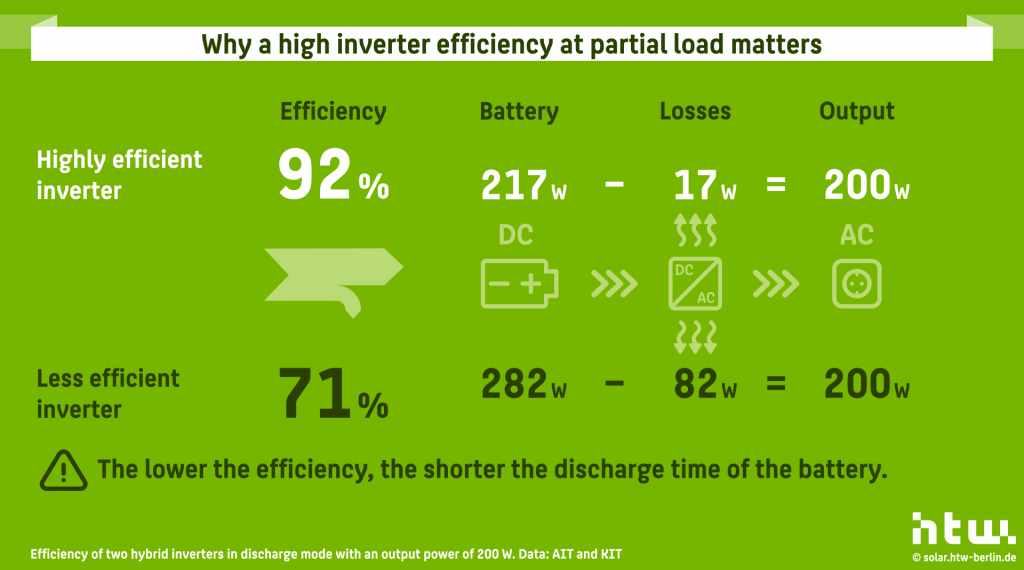
The winner is three times more efficient than the worst performer
In addition to conversion efficiency and standby consumption, the response time and accuracy of the control system also have a significant influence on the overall efficiency of PV storage systems. The latter is evaluated as part of the Energy Storage Inspection using the System Performance Index (SPI) in the 5 kW and 10 kW power classes. The SPI of a PV storage system summarizes the efficiency losses in one key figure, thus making different storage systems comparable. This year, 16 out of 20 tested systems achieved a very good SPI-value. Hybrid inverter and high-voltage battery system solutions from RCT Power, Energy Depot, BYD, Fronius and Kostal were on the winners‘ podium in both performance classes. The simulation-based system evaluation with the SPI also makes it possible to determine the financial impact of the efficiency losses of the tested systems. For example, the high losses of the most inefficient PV storage system in the study reduce the theoretically achievable cost savings by more than 270 euros per year. In comparison, the total losses of the top performer from RCT Power are three times lower, saving an additional 180 euros per year.
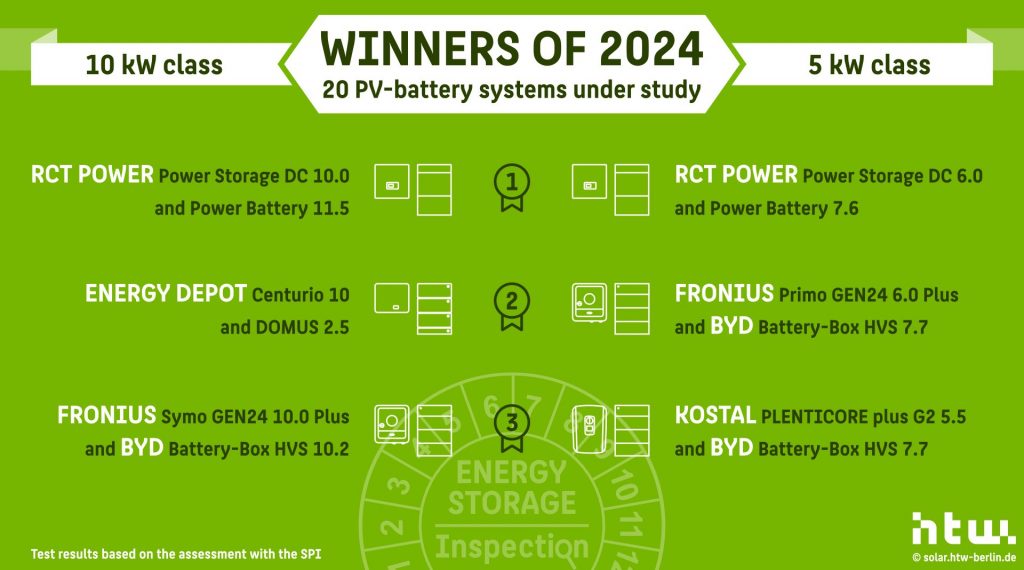
About the Energy Storage Inspection
In their annual Energy Storage Inspection, the Solar Storage Systems research group at HTW Berlin compares and evaluates the energy efficiency of PV battery systems. Since 2018, 30 manufacturers with a total of 82 storage solutions have partaken, including well-known companies such as BYD, Fenecon, Fronius, HagerEnergy, Kostal, SMA, Sonnen and Viessmann. Last year, the HTW Berlin developed the Energy Storage Inspector, a tool to support private customers in their search for a suitable and efficient home storage system. The web app can be used to compare the most important efficiency characteristics of the analyzed storage systems. The Energy Storage Inspector is continuously being expanded to include new products. Interested manufacturers can contact the Solar Storage Systems research group at HTW Berlin directly.
